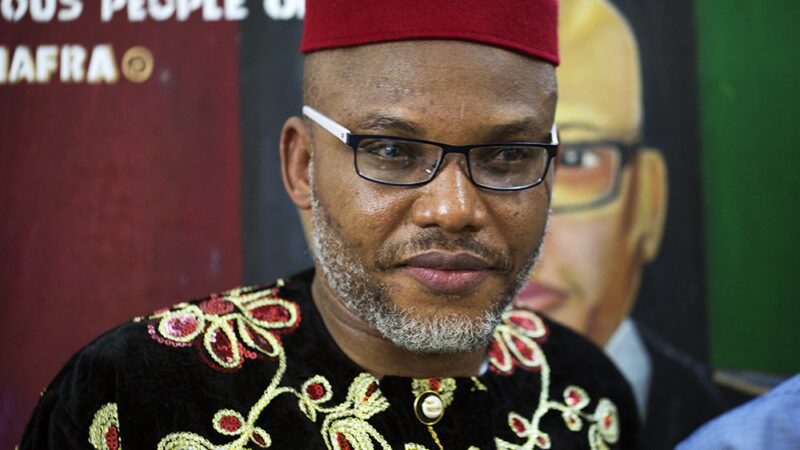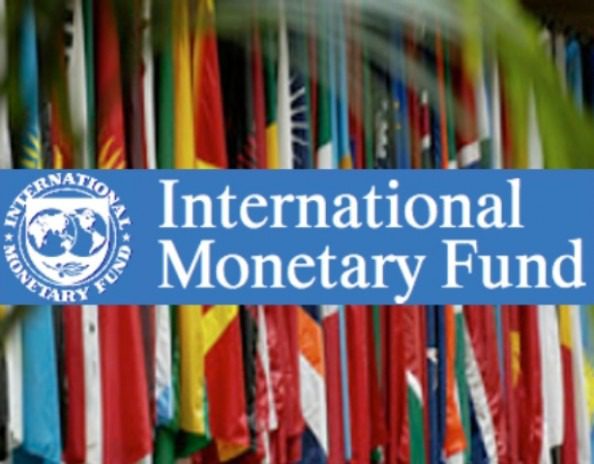Political Issues
Who wants Biafra? -By Minabere Ibelema


Nnamdi Kanu, leader of IPOB.
In studies of political movements, there is one constant finding: the sway of extreme elements is always disproportionate to their numbers. They are more fanatical. Their rhetoric is more emotional. And they don’t hesitate to threaten or intimidate those who hold less radical views. When level heads fail to prevail, the outcome is often disastrous.
That was certainly the case in the events leading to the secession of Eastern Nigeria in 1967. The pogrom against Easterners in Northern Nigeria was the precipitating event. Yet, historians have noted that the horrors per se were not enough to make the Eastern populace want to exit Nigeria. The prevailing view was that the country was undergoing a horrific crisis but normalcy would be restored. The declaration of secession was propelled by those who opted for the most radical option, and that included those who were driven by political ambition.
The horror of the pogrom was real, as was the anger it generated. But it was the exploitation of the emotions through massive propaganda that generated popular support for secession.
Lt. Col. Emeka Odimegwu Ojukwu, the military governor of Eastern Nigeria, told the world that he declared secession after due consultation. But quite a few historians and other Biafran leaders take issue with that claim. Among them is Ntieyong U. Akpan, who headed the Biafran civil service.“[T]he majority of people in former Eastern Nigeria, including the Ibos, did not initially support secession, and would have rejected the whole idea if they had been freely and fairly consulted,”Akpan wrote in his memoirs, “The struggle for secession, 1966-1970.”
Of course, fair consultation in the context was hardly possible. Emotions ruled and empowered the radical stance. Alas, that history may be repeating itself.
There is certainly an indication of that in the communique issued by a coalition of Igbo groups in response to the Arewa youths’ ultimatum that the Igbo should leave the North by Oct. 1. In the communique, the Eastern Consultative Assembly demands that the Igbo be allowed to leave Nigeria if the country is not restructured immediately. “Restructure Nigeria now or let us go,” the communiqué asserts.
Any student of group dynamics would readily discern that this statement is a compromise between radical and moderate wings of the assembly. If the pattern of such discussions held true, the radicals pushed for an independent Biafra while the moderates called for restructuring. With such polar positions, it is inevitable that a compromise would yield a demand for the improbable: Restructure now or let us go.
That the moderates acquiesced to the “now” demand is a demonstration of the sway of radical elements, a sway that will probably loom larger with time. Incidentally, the name Eastern Consultative Assembly was lifted from Ojukwu’s strategy book.
General Yakubu Gowon’s administration created 12 states out of four regions virtually overnight. But Nigeria is now a democracy, and in democracies, nothing happens overnight, not even the replacement of a broken street light. There are deliberations, negotiations, rejections and compromises, and these take a while to play out.
The Arewa youths that issued an ultimatum to the Igbo also seem bent on reprising the horror meted out to their 1966 counterparts. The only difference is that this time round they are humane enough to give a three-month grace period.
Northerners bore the brunt of the bloodshed of the January 1966 coup, which was led by Igbo officers. Yet the pogrom against the Igbo and other Easterners didn’t begin until several months later. It evidently wasn’t spontaneous mass hysteria. It was fermented by radicals — both civilian and military — who saw an opportunity to settle ethnic scores and advance political ambitions.
Despite the incitation, most Northerners were still horrified by the mass killings of people with whom they had lived peaceably for years. Had the masses in the North been as bloodthirsty as the radicals, few Igbo would have escaped. Quite the contrary, many Northerners provided shelter and facilitated Igbo escapes. Moreover, as General Joseph Garba recounted in his own memoirs, “‘Revolution’ in Nigeria: Another View,” the bloodshed would have been much worse had many Northern officers not risked their lives to quell it.
A tragic aspect of the current Biafra advocacy and radical Northern response is that both sides seem immersed in parochial views of the realities of the 1960s crises. There appears to be little awareness of the complications caused by the expulsion of Easterners from the North, not to talk of the loss of about one million lives during the ensuing civil war.
In the ultimate case of strange bed fellows, the Arewa youths’ ultimatum was supported by Biafra advocates MASSOB. Yet the expulsion of the 1960s caused considerable problems on both sides. Even before the outbreak of the civil war, a major crisis in Igboland was the challenge of accommodating hundreds of thousands of Igbo in a highly densely populated area. Ironically, that problem was eased by the drafting of young men into the Biafran army to fight and die.
The North experienced a reverse problem: a skills vacuum. With the departure of Igbo tradesmen and professionals—physicians, engineers, administrators —many Northern establishments found themselves barely functional. As then Major General Olusegun Obasanjo recounted in his own memoirs, “My Command,” the Army Corps of Engineers in the North was so depleted it had to resort to a crash programme for re-staffing.
These are just scratching the surface of the complications, and they are certain to re-occur, probably in greater magnitude.
Perhaps because I am not privy to the details of the neo-Biafra advocacy, I am not sure that there is a projected map of the advocated Biafra. In 1967, the boundary was easy enough to determine: Eastern Nigeria became Biafra. Today, things are a lot more complicated. So, when the Eastern Consultative Assembly demands immediate restructuring or “let us go,” what do they mean by “us”? Just the Igbo or other Easterners, as the name suggests?
The map of the advocated Biafra would seem easy enough if it is exclusively for the Igbo, but it isn’t that simple. It begs the question of who are the Igbo? Are the Ikwerre of Rivers State included? They are an amalgam of Igbo and Ijaw cultures. How about the Midwestern Igbo, with their similarly hybrid identity?
Things get a lot more complicated, of course, if “us” includes all Easterners. Non-Igbo Easterners were the least enthusiastic for the 1960s Biafra. Though sentiments have shifted somewhat over the years, it is improbable that a majority would embrace Biafra now that they have their own states. There may be considerable strife over such a choice.
Like the many other multi-ethnic countries around the globe, Nigeria is like a marriage involving many people. As with actual marriages, if one spouse incessantly expresses the desire to get out, there is bound to be a souring of interest all around. The Arewa youths’ ultimatum to the Igbo is readily a dangerous development in this regard.
Unlike in 1966, when things quickly got out of hand, the indications are that moderates will contain the political extremes this time. And their clarion call may well be another version of the triple Rs: re-negotiation, redistribution and/or restructuring.


















